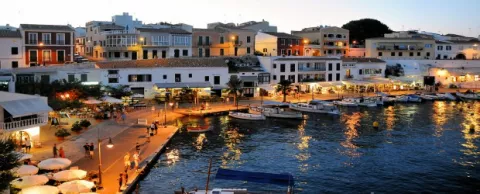
Smart projects typically inspire urban visions: connected skyrises, autonomous vehicles, high-tech transport. And while these are important elements to consider when it comes to urban planning for a city, there’s also a side that can benefit from smart solutions—nature. Islands such as Menorca in the Spanish Balearic archipelago are looking to smart ways to “reduce human pressure and environmental impact.” Here's how the Spanish island is solving this problem so human activity and nature can coexist.— Philippe Leonard (Spanish version)
Boosting electric mobility
The UNESCO-declared Biosphere Reserve of Menorca is currently home to 12 electric charging points, yet only 2 percent of the island’s vehicles are electric or hybrid. This is the first issue the island is looking to tackle in order to promote sustainability and boost electric mobility, reducing its carbon footprint through renewable energy strategies. With the help of Nissan, the island is getting the smart boost it needs to put action for electric mobility into place.
“The main purpose of the agreement is to work together in various projects around 100-percent electric mobility and energy management, so that coexistence of human activity and the natural heritage of Menorca is sustainable,” explains Marta Marimon, director of the department of electric vehicles at Nissan Iberia. The first course of action: improving the charging infrastructure to encourage the use of electric vehicles across the island, making charging stations more accessible by adding 10 new points, all powered by renewable energy.
The way forward
To meet its sustainability needs and goals, Menorca has created a pilot project in the hopes to increase electric mobility activities, promote car sharing services and tackle smart mobility issues. Dubbed “Menorca Smart Island: Energy and Mobility 2020,” the project offers proposals for the island, showcasing the advantages of buying electric vehicles and investing in the infrastructure to charge them. The project also highlights concepts such as Vehicle-to-Grid (V2G) technology, which works with renewable energy sources allowing electric cars to act as energy storage units. By communicating with the power grid, electric vehicles can use power from the grid to recharge at home, work or a charging station. Through this partnership with Nissan, the island can also look into technology like the XStorage system to recharge electric vehicle batteries, as well as power homes, through the use of stored clean energy. By coming together to create a sustainable energy model, Menorca and Nissan are showing how public-private partnerships can solve problems and offer solutions for cities, islands and even nature.



